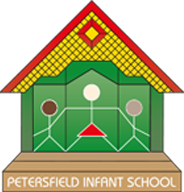English
Petersfield Infant School English Curriculum Vision Statement
The Early Years Foundation Stage and National Curriculum requirements for English sit at the heart of our school’s English curriculum. Over the three years that children are in our school, they will be taught the appropriate statutory requirements in speaking and listening, reading and writing. This includes the relevant handwriting, phonics, spelling, vocabulary and grammar elements in each year group.
At Petersfield Infant School, we are determined that our English curriculum should be appropriate, relevant and engaging for our pupils; that it uses the interests, passions and motivations of both our staff and pupils to ensure that adults and children alike are motivated to teach and to learn the skills, matters and processes that children are expected to have secured by the time they leave us at the end of their Key Stage 1 journey in preparation for Key stage 2. We build upon the children’s prior learning throughout their time at our school and use their skills and knowledge as springboards to maintain and further develop an enthusiasm and love of learning through the English curriculum.
Our English lessons are linked and develop on from one another: the skills that are taught and practised in one lesson are used and applied in increasingly complex contexts in subsequent lessons. Key elements of learning are returned to in subsequent units of work and across subjects, enabling the children to revisit and revise their use, supporting their learning to become a part of their long-term memories.
Early Reading and Phonics
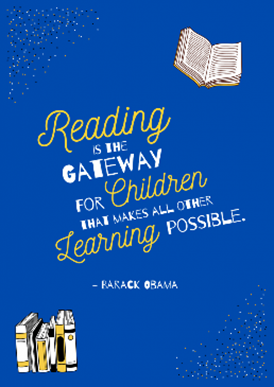
We are committed to ensuring that every pupil will learn to read regardless of their background, needs or abilities. We teach early reading through the systematic, synthetic phonics programme Little Wandle Letters and Sounds Revised. Right from the start of Reception children have a daily phonics lesson which follows the progression for Little Wandle Letters and Sounds and this continues in Year 1 to ensure children become fluent readers.
We teach phonics for 30 minutes a day. In Reception, we build from 2-minute lessons, with additional daily oral blending games, to the full-length lesson as quickly as possible. Each Friday, we review the week’s teaching to help children become fluent readers.
Children make a strong start in Reception: teaching begins in Week 2 of the Autumn term. We follow the Little Wandle Letters and Sounds Revised expectations of progress (please find link below for the progression document).
Four new phonemes and their corresponding graphemes are taught (GPCs) each week and they are then used in the final lesson of the week to review the week’s learning. Children will also learn tricky words during these sessions.
In the Autumn and Spring term, Reception learn phase 2 and phase 3 GPCs and then will spend the final term learning phase 4.
Year 1 begin the Autumn term with 3 weeks of revision of phases 2, 3 and 4 before learning phase 5, which will be completed by the end of the year. Year 2 children will begin the year by revisiting phase 5 and other previously taught phases to ensure all children are completely confident with applying these GPCs in both their reading and also their writing. Year 2 children who require further support and learning in phonics will receive additional lessons and interventions throughout the year.
Half termly assessments take place through Reception and Year 1 to help inform future teaching and help identify children who have gaps in their phonic knowledge and need additional practice. Daily assessment of learning also takes place within the classroom so staff can quickly identify any children who are in danger of falling behind and provide the appropriate daily ‘Keep Up’ intervention.
Our children are heard read within small groups for at least 60 minutes a week. Children in Reception and Year 1, read fully decodable books with an adult at least twice a week during our ‘Reading Practise’ sessions. These books are then taken home or sent electronically for children to build their reading fluency and showcase their developing skills and phonetic knowledge to their parents/carers. The two reading practice sessions have different focuses, decoding, prosody and comprehension. In Reception and Year 1, the children read the Little Wandle Letters and Sounds Revised Big Cat fully decodable books. Children in Year 2 will continue their reading journey by either continuing to read the Little Wandle decodable books or progressing to read colour banded books that are appropriately matched to their individual ability. Year 2 children will also read with an adult at twice a week. Year 2 teachers follow similar ‘Reading Practise’ sessions as in Year R and 1, however have a greater focus and emphasis on prosody and comprehension.
Raising Aspirations
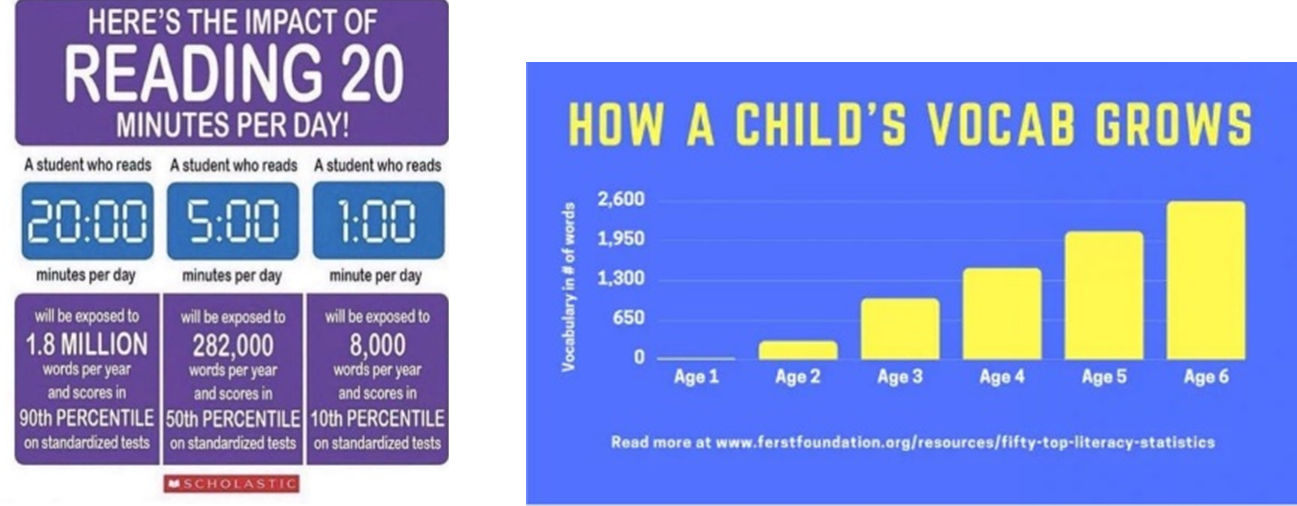 We know that children who read only one book a day hear approximately 290,000 more words by age 5 than those who don’t regularly read books with a parent or care giver (Logan, 2019). We know that children who read regularly for enjoyment everyday not only perform better in reading tests than those that don’t but also develop a broader vocabulary, increased general knowledge and a better understanding of other cultures. Therefore, it is our unquestionable duty to read to our children and expose them to the joys of story language while teaching them systematic, synthetic phonics so that children are fluent, independent readers by the age of 7.
We know that children who read only one book a day hear approximately 290,000 more words by age 5 than those who don’t regularly read books with a parent or care giver (Logan, 2019). We know that children who read regularly for enjoyment everyday not only perform better in reading tests than those that don’t but also develop a broader vocabulary, increased general knowledge and a better understanding of other cultures. Therefore, it is our unquestionable duty to read to our children and expose them to the joys of story language while teaching them systematic, synthetic phonics so that children are fluent, independent readers by the age of 7.
Reading for Pleasure
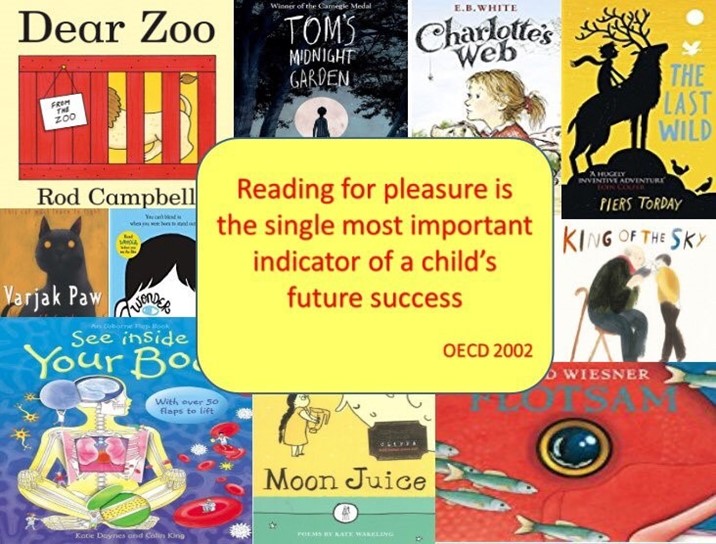 We value reading for pleasure highly and work hard as a school to grow our Reading for Pleasure pedagogy. We read to children every day. We want children to develop a genuine love of books and thirst for literature. We choose our books carefully as we want children to experience a wide range of books, including books that reflect the children at Petersfield Infants and our local community as well as books that open windows into other worlds and cultures.
We value reading for pleasure highly and work hard as a school to grow our Reading for Pleasure pedagogy. We read to children every day. We want children to develop a genuine love of books and thirst for literature. We choose our books carefully as we want children to experience a wide range of books, including books that reflect the children at Petersfield Infants and our local community as well as books that open windows into other worlds and cultures.
In Reception, children have access to the reading corner every day in their free flow time and the books are continually refreshed. Each class visits the school library weekly, with access to hundreds of up to date books provided by the Hampshire School Library Service. Children across the school have regular opportunities to engage with a wide range of Reading for Pleasure events (book fairs, sponsored reads, author visits and workshops, national events etc).
We understand that when children make good progress in reading they also find success in other individual subject disciplines; fluent readers learn more because they can read and gain knowledge for themselves. The ability to read fluently, comprehend and interpret is a prerequisite to success in later life. It is essential that our approach to teaching phonics and reading is accessible to all learners, regardless of background.
Speaking and Listening
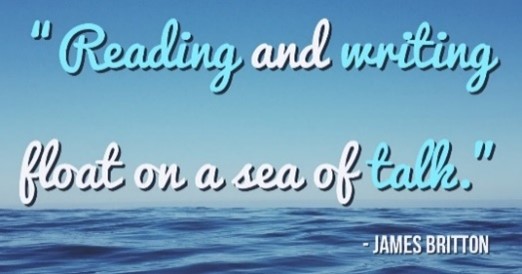 There is no doubt that good communication and speaking and listening skills are fundamental to a pupils’ language and social development. Not only this, we believe that speaking and listening underpins learning and thinking is therefore an essential tool for all areas of the curriculum. We ensure that pupils are provided with many and varied contexts for talk, as well as direct teaching in the skills of speaking and listening. This begins in the Foundation Stage, where ‘Communication and Language’ is recognised as a prime area of learning. From the moment they start Year R, our pupils are encouraged to practise these skills through their rich and varied curriculum. Children will have opportunities every day to listen attentively in a range of situations, respond to others, ask questions about their experiences and express themselves.
There is no doubt that good communication and speaking and listening skills are fundamental to a pupils’ language and social development. Not only this, we believe that speaking and listening underpins learning and thinking is therefore an essential tool for all areas of the curriculum. We ensure that pupils are provided with many and varied contexts for talk, as well as direct teaching in the skills of speaking and listening. This begins in the Foundation Stage, where ‘Communication and Language’ is recognised as a prime area of learning. From the moment they start Year R, our pupils are encouraged to practise these skills through their rich and varied curriculum. Children will have opportunities every day to listen attentively in a range of situations, respond to others, ask questions about their experiences and express themselves.
As pupils move into Key Stage 1, speaking and listening is embedded through all of our teaching and learning. Our children love to take part in class debates, group discussions and drama activities. We encourage collaborative working and provide lots of opportunities for this each day. We also ensure that our pupils are able to use Standard English confidently in a range of formal and informal contexts so that they can have a deeper, meaningful level of collaborative conversation about a topic, responding and initiating using higher level questioning.
Writing
 At Petersfield Infants, we endeavour to create a purposeful atmosphere that will encourage children to become enthusiastic, independent and fluent writers. We know that children learn best when they can relate to, and are engaged by, their learning. With this in mind, children in Year 1 and 2 are taught through the use of ‘Learning Journeys’. Teachers plan journeys – a series of linked and related lessons that last between one and three weeks. These journeys provide the children with real and relevant contexts for their learning. We know that children produce the best writing outcomes when they are meaningful and relevant to them. In order for this to be most easily achieved, we ensure that each learning journey has engaging ‘hooks’ to launch them and to create the context for the writing that is to come throughout the journey.
At Petersfield Infants, we endeavour to create a purposeful atmosphere that will encourage children to become enthusiastic, independent and fluent writers. We know that children learn best when they can relate to, and are engaged by, their learning. With this in mind, children in Year 1 and 2 are taught through the use of ‘Learning Journeys’. Teachers plan journeys – a series of linked and related lessons that last between one and three weeks. These journeys provide the children with real and relevant contexts for their learning. We know that children produce the best writing outcomes when they are meaningful and relevant to them. In order for this to be most easily achieved, we ensure that each learning journey has engaging ‘hooks’ to launch them and to create the context for the writing that is to come throughout the journey.
Each learning journey incorporate learning across a range of the subjects taught in each year group and enable the children to use and apply their prior learning as well as their new learning in a range of contexts. They culminate in the production of a written outcome. These are for a real and specific purpose and audience – for example, children in Year 2 write a description of a Woolly Mammoth after it had escaped from Petersfield Museum and been spotted around the town!
In Year R, the learning journey is fluid and opportunities and outcomes are predominantly led by the children’s interests and motivations. Adults respond to these and create activities, provide resources and materials, and engage children in child initiated and adult-led learning opportunities in order to enable them to achieve the next steps in their individual journeys towards the relevant Early Learning Goals.
From Year 1 and 2, the journeys are generally more fixed. They are planned by the teachers to include carefully selected aspects of the speaking and listening, reading and writing expectations for their year group. Teachers identify and link appropriate spelling, punctuation, grammar and writing objectives which are then carefully mapped into the learning journeys within each half-term. As each journey progresses, the children are taught and practise the objectives before using and applying them in specific writing outcomes. The children are required to combine the skills, knowledge and understanding that they have learned both in the current learning journey and from previous journeys in order to produce their final outcome.
Throughout each journey, the children see and hear what their writing should look and sound like through the use of high-quality models. The journey is shared with the children in a range of ways, including a ‘Learning Journey’ front cover which is stuck in the child’s book at the start of each one. Each class also contains an English Working Wall which sets out the stages of the learning journey and is used to capture key examples and elements through the stages of the learning. These are returned to throughout the journey and are used to support the children to use and apply the required skills with increasing independence.
Handwriting
 In Reception, alongside the teaching of phonics, our children learn how to form their letters correctly during daily handwriting sessions. We follow the Little Wandle handwriting guidance that provides formation phrases, which make a link between the mnemonic and the letter. As per the Department for Education guidance, we do not teach cursive in year R.
In Reception, alongside the teaching of phonics, our children learn how to form their letters correctly during daily handwriting sessions. We follow the Little Wandle handwriting guidance that provides formation phrases, which make a link between the mnemonic and the letter. As per the Department for Education guidance, we do not teach cursive in year R.
We encourage high levels of presentation and as our children progress into year 1 and 2 they are taught cursive handwriting for single letters. Once they are confident and ready to progress, they are taught how to join letters.
Useful websites and resources:
Little Wandle Programme Progression Document
Year 2 Common Exception Word Map
Year 1 How to say the Phase 5 sounds

